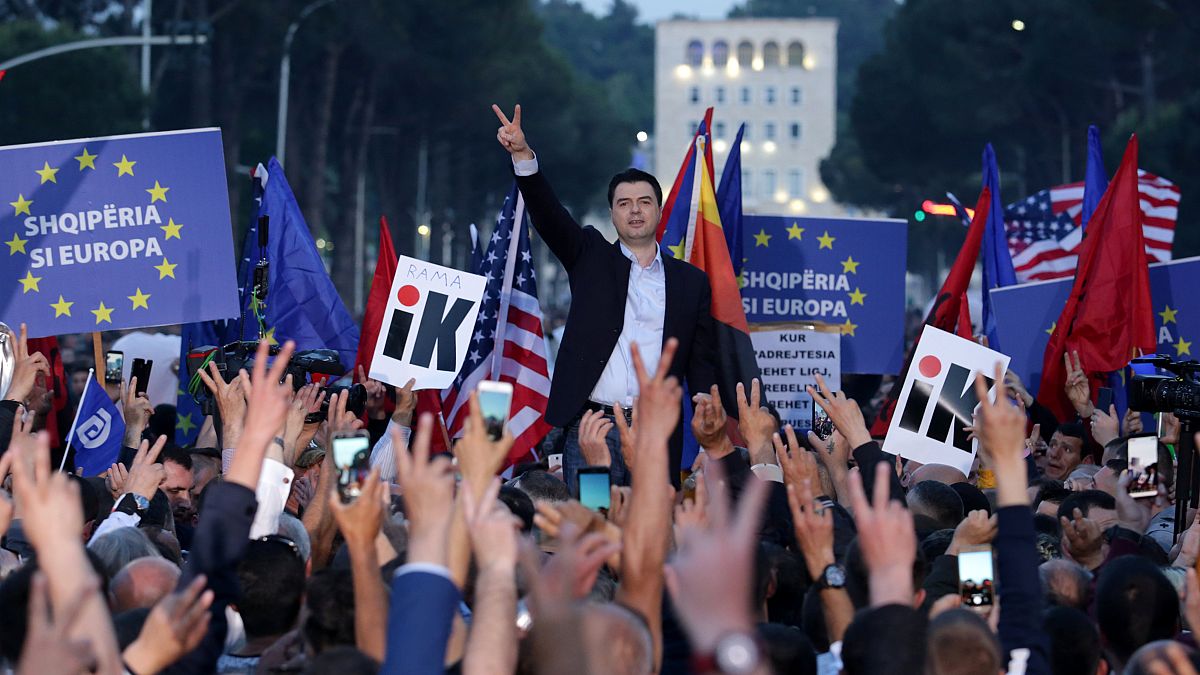The EU said the western Balkan countries had delivered on reforms, but full EU membership remains a distant ambition.
The Western Balkans lie at a crossroads - and the EU wants those countries to turn towards Brussels.
For a second time, the EU Commission has recommended that Albania and North Macedonia start accession talks with the EU.
The latter even changed its name to following a long dispute with Greece to win favour with Europe.
However, in Albania, the decision comes at a time of tensions. The country is struggling with protests over alleged government corruption cases. And in the aftermath of an incident between Kosovo and Serbia, the EU called for the prospect of EU membership to be used wisely.
"If it is used in a smart manner today, we can encourage this in a cooperative way and consolidate them and make this change irreversible. If we miss this opportunity, I see the risk of the dark forces of the past coming back in terms of confrontation even conflicts," Federica Mogherini, EU Foreign Policy Chief told reporters.
However, not all EU countries believe now is the time for welcoming new members.
France, backed by the Netherlands, said that the bloc must first reform itself first. However, EU diplomats say Paris is mainly concerned about anti-immigrant sentiment at home.
"The size of the population is not any kind of threat to European economies or to European stability. To the contrary the real threat to European stability is to keep this region without a stable future. That is the threat that it represents and it is we know the reluctance in France, the reluctance in the Netherlands is very much linked to domestic politics," explains Edouard Joseph, foreign policy expert from the Center for Transatlantic Relations.
The professor who has lived for years in the Balkans also stressed the risk of Russia's interference in the region.
"We know that Russia is highly active in Bosnia's Republic and in Serbia attempting to present itself as an alternative attempting above all to thwart the policy of the West which is to the Euro-Atlantic integration of the Balkans, and it is critical to counter that by continuing to reinforce the message that if these countries make the required reforms and they must make the required reforms then they do have their European future in their path," says Joseph.
Now it's up to the EU member states to decide in June whether or not to give the green light.
